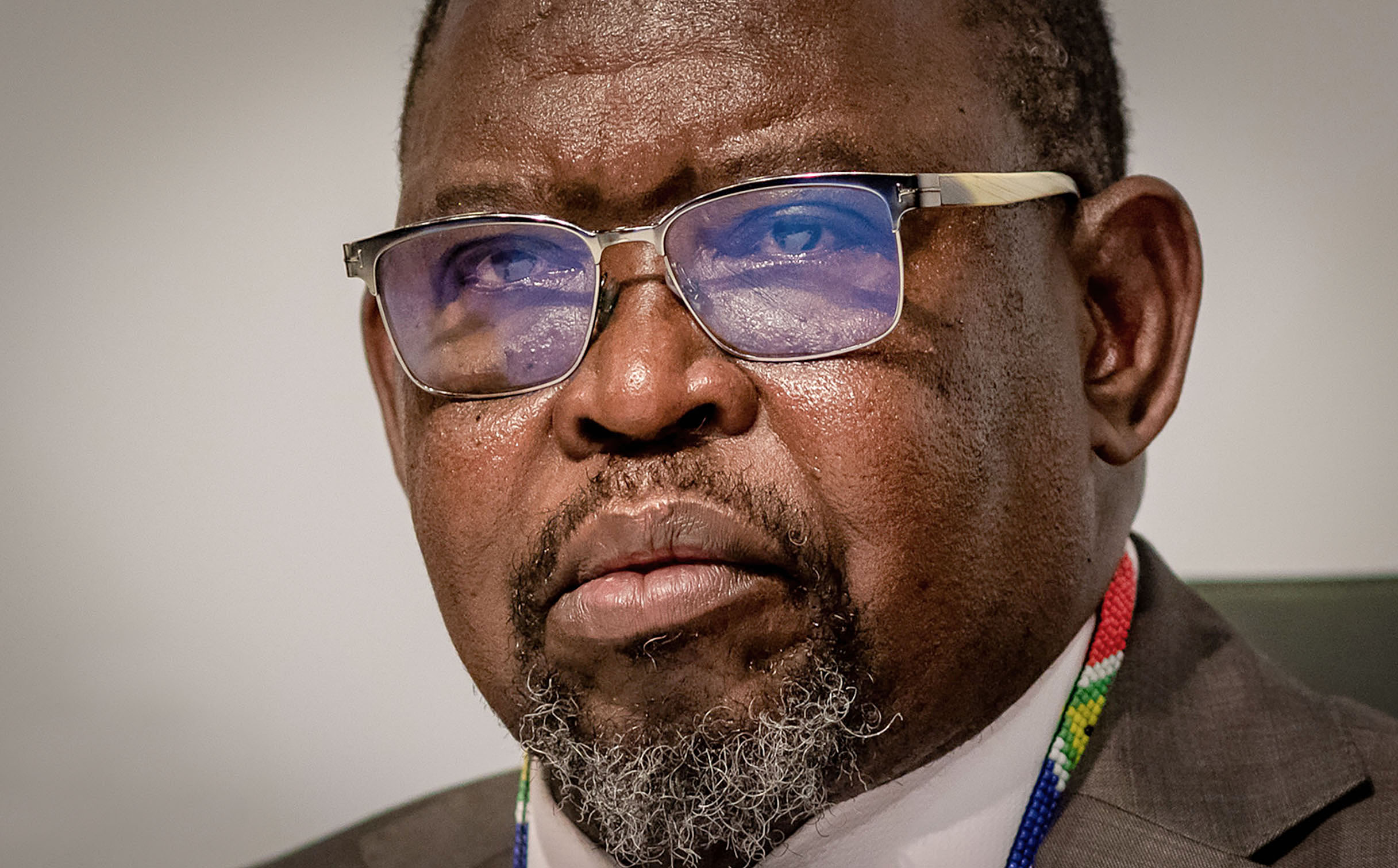With the loathed VAT hike now consigned to the dustbin of history, South Africa’s National Treasury has no choice but to start trimming the fat from a bloated and ineffective state.
The laws of economic gravity will not be defied and the gravity of the situation is dire. Over the medium term, there is a shortfall in budget planning of R75-billion, and if it is not plugged a fiscal cliff looms that will send a fragile economy hurtling into the abyss.
The Finance Ministry made the announcement just after midnight, on Thursday 24 April 2025, saying it would not, as had been planned, lift the VAT by 0.5 percentage points to 15.5% from 1 May.
Read more: VAT increase withdrawn, expenditure adjustments on the cards
Amid fierce political pushback and court challenges from the ANC’s GNU partner, the DA — which united with its ideological opposite the EFF on this front — Finance Minister Enoch Godongwana, who is currently in Washington for the annual spring meetings of the IMF and World Bank, threw in the towel.
“The decision to forego the increase follows extensive consultations with political parties, and careful consideration of the recommendations of the parliamentary committees. By not increasing VAT, estimated revenue will fall short by around R75-billion over the medium term,” the Finance Ministry said in a statement.
“Parliament will be requested to adjust expenditure in a manner that ensures that the loss of revenue does not harm South Africa’s fiscal sustainability.”
Translation: a panga will now finally be wielded to spending.
What this means for you
The VAT that you pay on many of the goods you buy will remain at 15.0% from Thursday, 1 May instead of rising to 15.5%. Depending on your consumption habits, that means more money in your pocket and the income tax you pay is not about to get hiked.
* In the long run it will hopefully lead to better value for the taxes you pay as the government will now have to start cutting the fat from the bones of a failing state.
‘Only game in town’
“Without a VAT increase, spending cuts are the only game in town, realistically,” a senior Finance Ministry source told Daily Maverick.
After years of squandering and providing a swelling army of cadres and their kin with government jobs and contracts — not to mention outright stealing and looting — there are simply no other trees left to shake in the hope that money will magically fall from the canopy.
“What options are available? There are no options to make up the shortfall through corporate or personal taxes. It simply doesn’t exist,” Daniel Silke, director of Political Futures Consultancy, told Daily Maverick.
The government also cannot borrow more than planned because its debt load is reaching the critical danger point of more than 75% of gross domestic product with the fiscal cliff looming ominously on the horizon.
“I suppose you could make some adjustments in terms of better revenue collection. Or you could go the route of a comprehensive review of government spending.”
That may be hard for the ANC’s sprawling patronage networks to swallow, but the gravy train is reaching the end of the line.
“This would mean tough cuts across departments and cutting the bureaucracy as well. And the ANC has been reluctant to do this given its patronage networks, and this is all that is left for the ANC as a political party. To chip away at this will undermine the ANC’s ability to command any loyalty,” Silke said.
Other clouds gathering
And the fiscal outlook has other clouds gathering.
The IMF this week slashed its growth forecast for South Africa’s economy 2025 to 1.0% from 1.5% as it downgraded its global economic outlook in the face of the tariff and geopolitical madness unleashed by Trump 2.0.
Read more: IMF slashes SA global growth forecasts as tariffs reach hughest level in a century under Trump
South Africa’s economic growth performance has for years been woeful — this is one of the key reasons for this fiscal fiasco in the first place — and slower-than-expected growth at this crucial juncture will mean less revenue for the Treasury.
The VAT hike would also have been an additional burden to growth and an unwelcome spark to inflation, which is currently close to five-year lows.
Read more: South Africa’s consumer inflation brakes to almost five year low of 2.7 in March
Then there is the element of domestic political and economic uncertainty about what is next for the Budget against the heaving backdrop of unprecedented levels of global uncertainty.
The original proposal of a 2.0 percentage point hike derailed the reading of the Budget in February, and this was then whittled down to 0.5 percentage point increases over the next two years, which would have brought the VAT to 16.0% in 2026.
Now it’s back to the drawing board — over two months, nogal! — after the Budget was supposed to have been initially tabled, as has been the case every year, a South African ritual as regular as the coke in Oom Piet's brandy at Christmas.
This ham-fisted approach to crafting a Budget by a tone-deaf ANC — which suddenly seems to have realised that it no longer commands a parliamentary majority — is hardly going to inspire investor confidence.
The markets were certainly wary of the potential consequences of the VAT hike. The yield on South Africa’s benchmark 10-year bond yield fell 10 basis points in early trade on Thursday to 10.735%, according to data compiled by TradingView.
This signals that investors in South African debt are relieved that the VAT increase is no longer on the table, but the fiscal drama needs to end for yields and borrowing costs to fall significantly further.
That may require the cutting process to be mechanised from a panga to a chainsaw. DM





